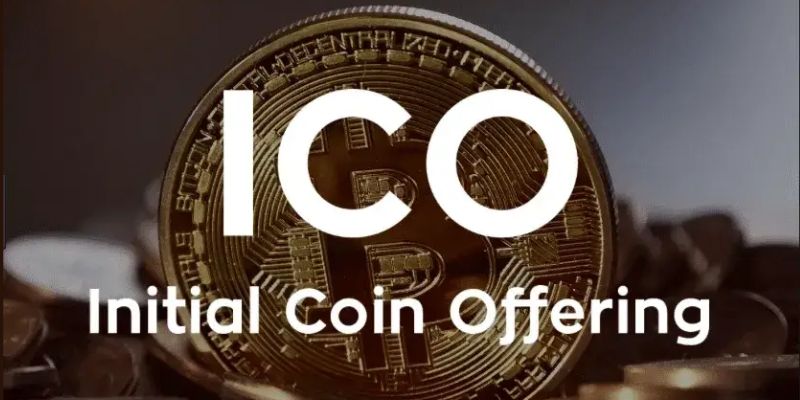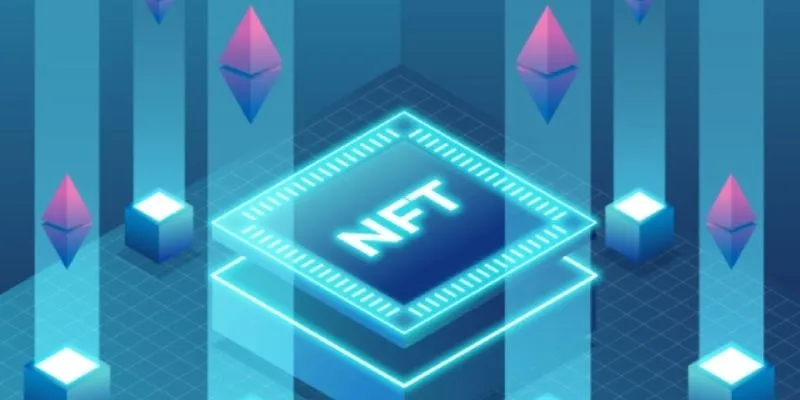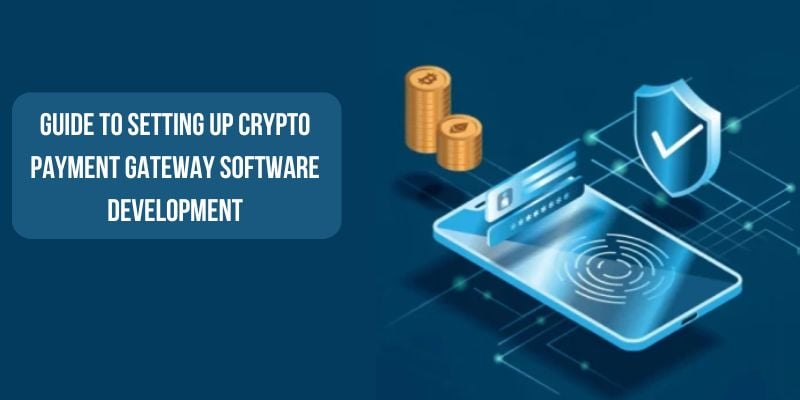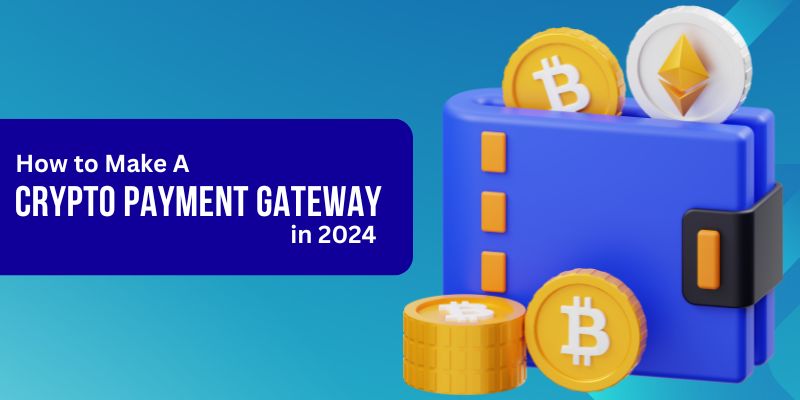Blockchain and cryptocurrency technologies have seen exponential growth over the last decade, garnering significant interest from tech-savvy individuals and giving rise to Initial Coin Offerings (ICOs). These fundraising mechanisms have quickly become a popular means for blockchain projects to raise funds necessary for development; however, successfully planning and executing an ICO website development plan requires careful strategy planning, compliance with applicable laws, and dedicated blockchain ICO developers.
This comprehensive guide will explore all the complexities of launching an effective ICO. From understanding ICO software development basics to marketing and legal considerations, this comprehensive overview will equip you to start an ICO journey successfully. Whether you are an individual trying to raise funds for your blockchain project or an investor considering participation, this comprehensive overview provides crucial knowledge that can increase your chances of success and help guide informed choices that increase your chances of success.
Understanding the Basics of ICO Software Development
Before embarking on ICO software development, it's essential to understand some key concepts. An ICO allows projects to raise funds by providing tokens to investors in exchange for cryptocurrencies like Bitcoin or Ethereum. These tokens typically offer product or service access to the project's platform.
An ICO differs from an IPO because tokens may represent equity, utilities, or both. Tokens are distributed via smart contracts, which execute the deal terms. A project's whitepaper outlines its vision, tech solutions, and tokenomics (token supply, distribution schedule, etc.). It's crucial for attracting early backers and ensuring regulatory compliance.
Planning Your ICO Project
Developing a successful ICO software development requires extensive planning. The first step is brainstorming your project concept and identifying a real problem it solves. Make sure there is market demand. Projects tackling decentralized storage, identity management, and financial inclusion do well. Planning an ICO project involves meticulous groundwork. Start by defining the project's vision and outlining its problem-solving potential and innovative aspects. Create a detailed roadmap encompassing development milestones, tokenomics, and funding goals.
Compliance with regulatory frameworks and legal applications is paramount. Assemble a skilled team, highlighting expertise and credibility, which are crucial for investor trust. Engage in market research to understand the competitive landscape. An airtight whitepaper outlining the project's technicalities and benefits is a cornerstone for investor confidence, setting the stage for a successful ICO launch.
Developing the MVP
Build a Minimum Viable Product (MVP) to authenticate your solution's potential. Keep the MVP simple – focus on delivering core functionality. It boosts credibility when pitching to investors. Developing a Minimum Viable Product (MVP) is pivotal in showcasing your project's core functionalities and value proposition. Focus on building a functional prototype demonstrating your solution's feasibility and addressing the identified problem. The MVP is a tangible demonstration of your project's potential, crucial for garnering investor interest and feedback guiding further development.
Assembling the Core Team
Surround yourself with co-founders who complement your skills. Hire expert advisors specializing in law, PR, and community management. A strong team is critical to long-term success. Assembling a competent and diverse core team is integral to an ICO's success. Comprising experienced professionals across technical, marketing, and legal domains fosters credibility and expertise. A well-rounded team strengthens investor confidence and ensures comprehensive project execution.
Finalizing Your Vision and Roadmap
Clearly articulate your 5–10-year vision through a strategic roadmap. Lay out development milestones and intended use cases to convince backers of your potential. Investors want confidence in a project's future. Finalizing a clear vision and roadmap is essential for guiding the ICO project. The roadmap should delineate key milestones, development phases, and a realistic timeline. Aligning the project's vision with a feasible plan aids in communicating the project's trajectory to investors and stakeholders, instilling confidence in its execution.
Seeking Legal Counsel
Laws vary worldwide, so consult regulatory and legal experts regarding securities, data, and other compliance issues in target jurisdictions. It mitigates risks down the line. Engaging legal counsel is crucial to ensure compliance with regulatory frameworks. A legal advisor helps navigate the complex legal landscape, ensuring adherence to securities laws, regulatory compliance, and mitigating potential risks. Addressing legal aspects early in the ICO process minimizes regulatory hurdles, fostering a more secure and legally sound project launch.
Developing the Technical Solution
Developing a robust technical solution for an ICO involves creating a secure and scalable platform. Utilize cutting-edge blockchain technology that aligns with your project's objectives, ensuring efficiency and transparency. Engage skilled developers proficient in blockchain architecture and smart contracts. Implement stringent security measures to safeguard against potential vulnerabilities, assuring investor trust.
Conduct thorough testing and iterations to refine the technical solution, optimizing functionality and user experience. A well-crafted technical solution underpins the project's credibility and lays the foundation for a successful ICO launch, attracting investors by showcasing the project's innovation and potential impact. Shift focus to developing the following innovative tech:
Design the Blockchain Architecture
Architect a tailored blockchain powered by smart contracts, keeping scalability and your vision in mind. Popular options include Ethereum, Stellar, and Hyperledger. Consider integrating side chains for specific use cases.
Designing the blockchain architecture entails structuring a decentralized system that supports the ICO's functionalities. Selecting the appropriate consensus mechanism, defining data structures, and planning intelligent contracts are integral components. Tailoring the architecture to ensure scalability, security, and interoperability is crucial for a robust foundation
Develop the Minimum Viable Product (MVP)
The Code initial intelligent contracts, APIs, and bare front ends are required to demonstrate your solution. Release frequent updates to gather feedback and improve based on user needs before the ICO. Developing an MVP involves creating a basic yet functional version of the project. Focus on core features that demonstrate the solution's value proposition. The MVP is a tangible representation for potential investors, offering a preview of the final product's capabilities.
Conduct Security Audits
Subject smart contracts and core systems to security audits by specialized firms. Address vulnerabilities before they can be exploited during the live ICO. This will instill trust in investors. Conducting thorough security audits is imperative to identifying and rectifying vulnerabilities within the project's technical infrastructure. Penetration testing, code review, and smart contract audits are essential to fortify the system against cyber threats.
Choose a Distribution Platform
Decide whether to build your token sale platform or leverage a customizable third-party solution for its robust features and credibility. Consider integrating with popular wallets, too. Selecting an appropriate distribution platform involves deciding on the blockchain network or outlet where the token will be launched and distributed. When choosing the venue, Consider scalability, transaction speed, and community support. Compatibility with the project's requirements and long-term goals is pivotal for a successful token distribution.
How to Make a Successful ICO?
The general public's investment in Initial Coin Offerings (ICOs) is maturing, and they expect more from new contenders in the market. Therefore, it is critical to create a well-considered ICO strategy. Here are the key steps to launch a successful ICO and take advantage of your initial coin offering.
Is ICO Required?
Before launching an ICO, it is essential to determine whether it is necessary. Although you can raise funds through an ICO in just a few days or months, ensuring that your token has a significant value proposition and complements the product or service you are developing on the blockchain platform is crucial. If your token is perceived as just another virtual currency, it may not pique the interest of potential investors, given the already crowded market of over 10,000 cryptocurrencies.
To ensure the success of your ICO software development solutions, you need to solve a unique problem and bring value to the blockchain community. To achieve this, some dedicated blockchain ICO developers focus on specific purposes, such as building apps for the realities of Web3 or targeting a particular industry, such as finance, to develop a trading token.
It is essential to consider geographical restrictions when launching an ICO software development, as countries have varying policies. Countries known to be ICO-friendly include Switzerland, Singapore, Hong Kong, Lichtenstein, the British Virgin Islands, and the Cayman Islands.
Additionally, it is crucial to note that offering tokens to US residents automatically subjects you to SEC regulations. Therefore, it is essential to communicate the purpose of your token clearly and avoid terms such as "security" or "high returns on investment," which may prompt an investigation.
Hire a Team & Advisors Board Together
Building a skilled team that can take the project to the next level is crucial to the ICO software development process. While the founders are responsible for initiating the project, the team members are essential for executing various tasks such as product development, marketing, and community support.
Apart from the core team, advisors who can provide valuable guidance and support are also necessary. While it may only sometimes be possible to get high-profile advisors like the Ethereum founders, seeking advice from experienced individuals who can help the project is crucial.
It is advisable to have a legal advisor who has worked on other ICO software development solutions. If that is not possible, working with a contract lawyer specializing in securities is recommended to ensure compliance with KYC and AML regulations.
Prepare Product Roadmap
It is important to remember that your product is the primary reason for launching an ICO website development. To establish a positive image of dedicated blockchain ICO developers, providing a detailed product roadmap with a cost breakdown is recommended.
Due to market saturation, crypto investors conduct proper due diligence before purchasing tokens. Experienced investors will check how frequently your development team creates code for GitHub or other source code repositories.
At the same time, some projects, particularly those focused on developing new blockchains, require significant funding even for the MVP phase. This is due to the lengthy process of creating an MVP.
A product roadmap is crucial if you still need an MVP. In such cases, it can demonstrate the founder's ability to turn their vision into a revenue-generating product through a defined set of steps.
Get Out a White Paper
A white paper is crucial to any ICO software development, as it establishes trust and reliability with potential investors. When experts in the crypto industry evaluate a white paper, they can point out areas for improvement.
One of the first things you should do before reaching out to the crypto community is to feature your white paper prominently on your website.
When serious investors visit your ICO website, they will want to see a white paper detailing your product roadmap, the industry and competition landscape, and tokenomics.
At the very least, your white paper should include sections that address the following:
- Defining the problem and solution
- Analyzing the market and competitive environment
- Providing details about your token economy
- Providing an overview of your team
To get started, you may want to examine the white papers of the top ten most successful ICO software development.
Build Your Community
As an organization planning to launch an initial coin offering (ICO),targeting potential investors through various marketing channels is crucial to generating interest in your cryptocurrency and upcoming ICO. Establish a presence on social media like Twitter, Facebook, and Instagram to achieve this. Additionally, it's essential to have a presence on forums like Reddit and BitcoinTalk, which are popular among the tech-savvy public.
Another essential task is to list your ICO on various ICO listing sites. These sites display past, active, and upcoming ICOs, making learning about your ICO easier for potential investors. You can find a comprehensive list of ICO listing sites online by searching for "ICO listings" on Google.
Conducting interviews and attending conferences can also help promote your ICO software development. By doing so, you can pitch your ICO to industry experts and make connections that could help you recruit advisors for your advisory board.
Finally, to answer potential investors' questions, it's essential to have a public channel on messaging apps such as Slack, Telegram, or Discord. This way, you can chat with your supporters and address their concerns.
Pick Token Sale Model
ICO launches are typically hosted on the Ethereum blockchain platform, which offers support for smart contracts, which are essential for automating token generation and distribution. However, before we delve into this, let's first examine the various popular models of token sales.
Soft Caps: The soft cap is the minimum amount of funds an ICO must raise to be successful. Investors can claim their investment back if the ICO website development fails to reach the soft cap.
Hard Caps: The hard cap is the maximum amount of capital an ICO can raise, and the ICO stops once it has reached this limit.
Dutch Auction: In a Dutch Auction, you don't need to determine the token price beforehand. Instead, an intelligent contract accepts bids as soon as the sale starts. The bids received are ordered from highest to lowest, and the highest bids receive priority in receiving tokens until all tokens are sold.
Hybrid: As the number of initial coin offerings (ICOs) increase, companies are exploring different token sale models to attract genuine investors interested in their product rather than just looking to speculate as soon as the token is available for trading. The objective is to distribute tokens among a high-quality user base.
Keeping the sales model for ICO website development is vital to avoid repelling early supporters and making the ICO vulnerable to attacks.
Develop Smart Contracts and Mint Tokens
Create a smart contract to produce tokens and automate the token distribution process. The ERC-20 token is the industry standard specifying smart contract parameters for ICO software development.
Develop Smart Contracts and Mint Tokens
Blockchain industry experts have thoroughly tested these smart contracts and have already conducted a successful Initial Coin Offering (ICO). However, it is always better to exercise caution when dealing with your investors' contributions, as once a smart contract is placed into the blockchain, you have very little control over it.
Therefore, it is advisable to audit your smart contract before deploying it to Ethereum. Typically, after extensive internal testing, companies make their intelligent agreements available for public review and offer bug bounties for reported glitches.
In addition to developing a smart contract for creating tokens and distributing them among your supporters, you can also make a web application with a user interface (UI) for personal accounts. Such an investment management app will assist contributors in tracking their assets and accessing project information at any time.
Launch ICO
When day X arrives, the ICO software development will begin automatically as programmed in an Ethereum smart contract. Creating a web interface to allow live demonstration of the token sale process is always a good idea.
Post-ICO Life
ICO software development will be launched successfully with the right team. From this moment, blockchain experts will closely monitor your company, multiple ICO software development solutions listing sites, and homegrown experts with a huge follower base on YouTube and other social networks. It's not the time to relax and take things for granted.
It's vital to maintain regular communication with the community of supporters, be transparent about the deliverables, and keep building your great product!
Conclusion
Developing a successful Initial Coin Offering (ICO) encompasses a comprehensive strategic planning cycle, meticulous execution, and ongoing engagement. It starts with thorough groundwork: crafting a compelling narrative, assembling a skilled team, and designing a robust technical solution. Community engagement and brand building through website launches, whitepaper publications, and influencer collaborations pave the way for a successful token sale.
Sustained communication, regulatory compliance, and continuous innovation are pivotal. The cycle was completed by fostering a loyal community, nurturing investor relations, and adapting to market shifts. A successful ICO software development solutions isn't just about fundraising; it's about laying a resilient foundation for a project's sustainable growth and impact in the dynamic crypto landscape.
Knowledge and benefit from their strategic insights, giving your project a competitive edge in the ever-changing world of cryptocurrency fundraising.













Share this blog